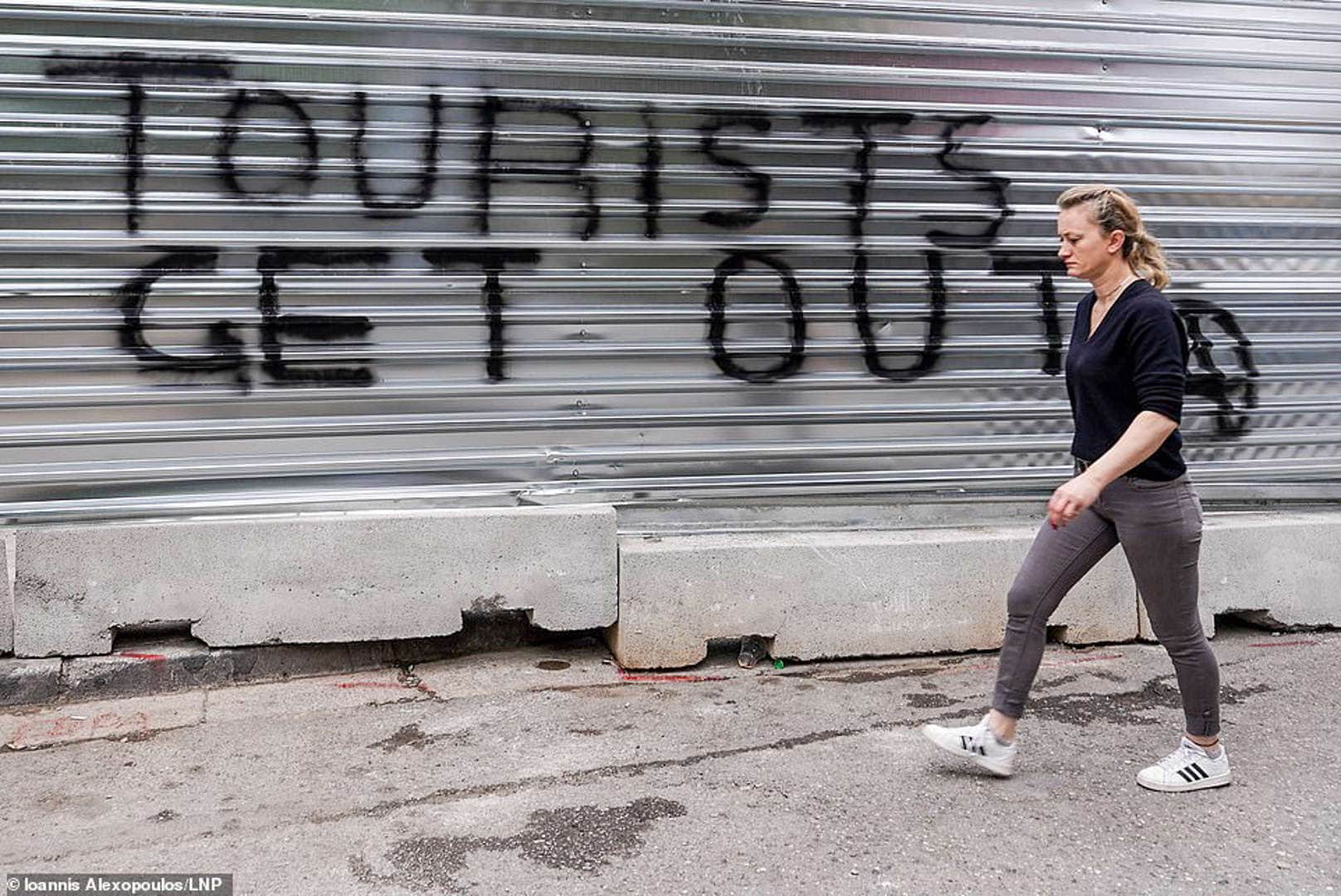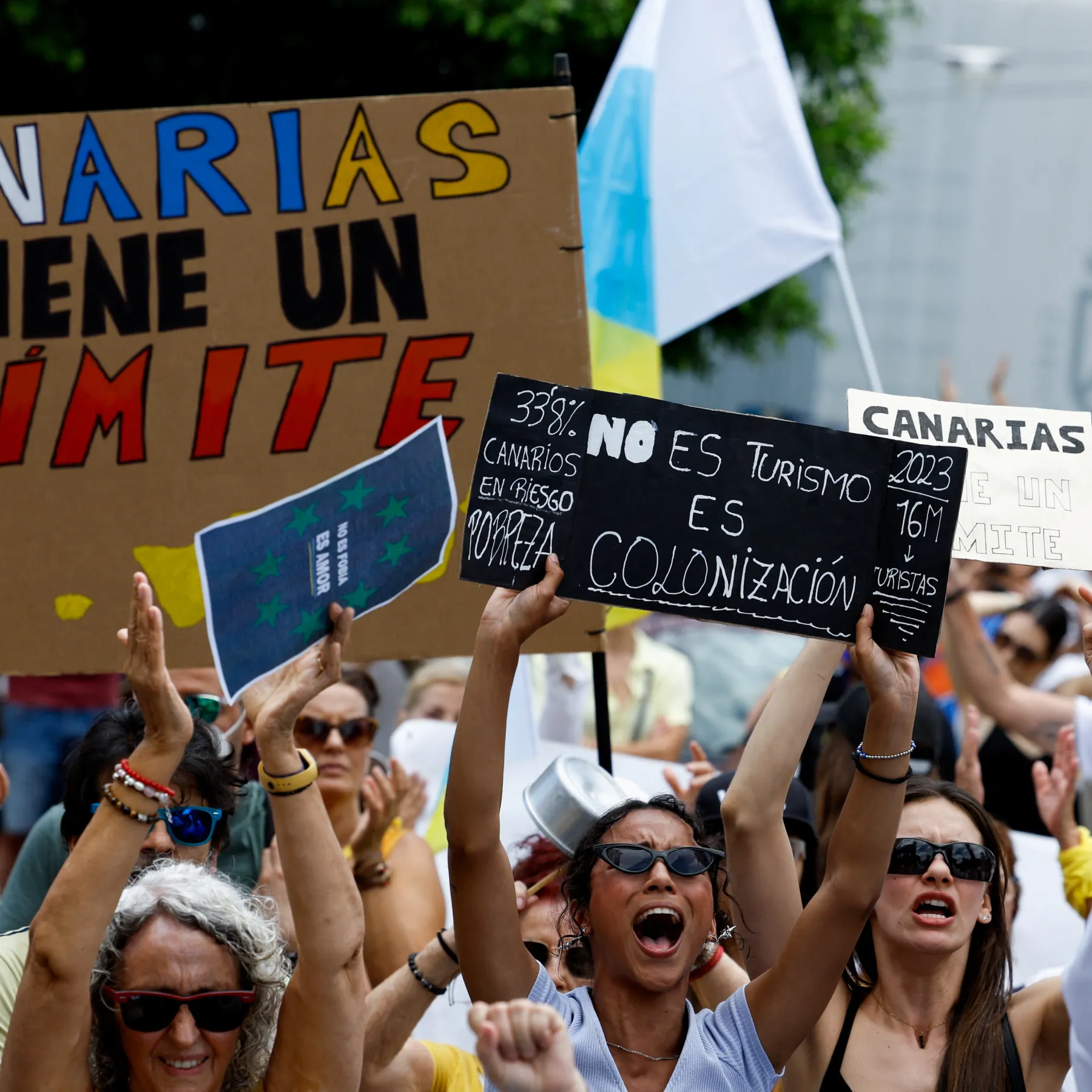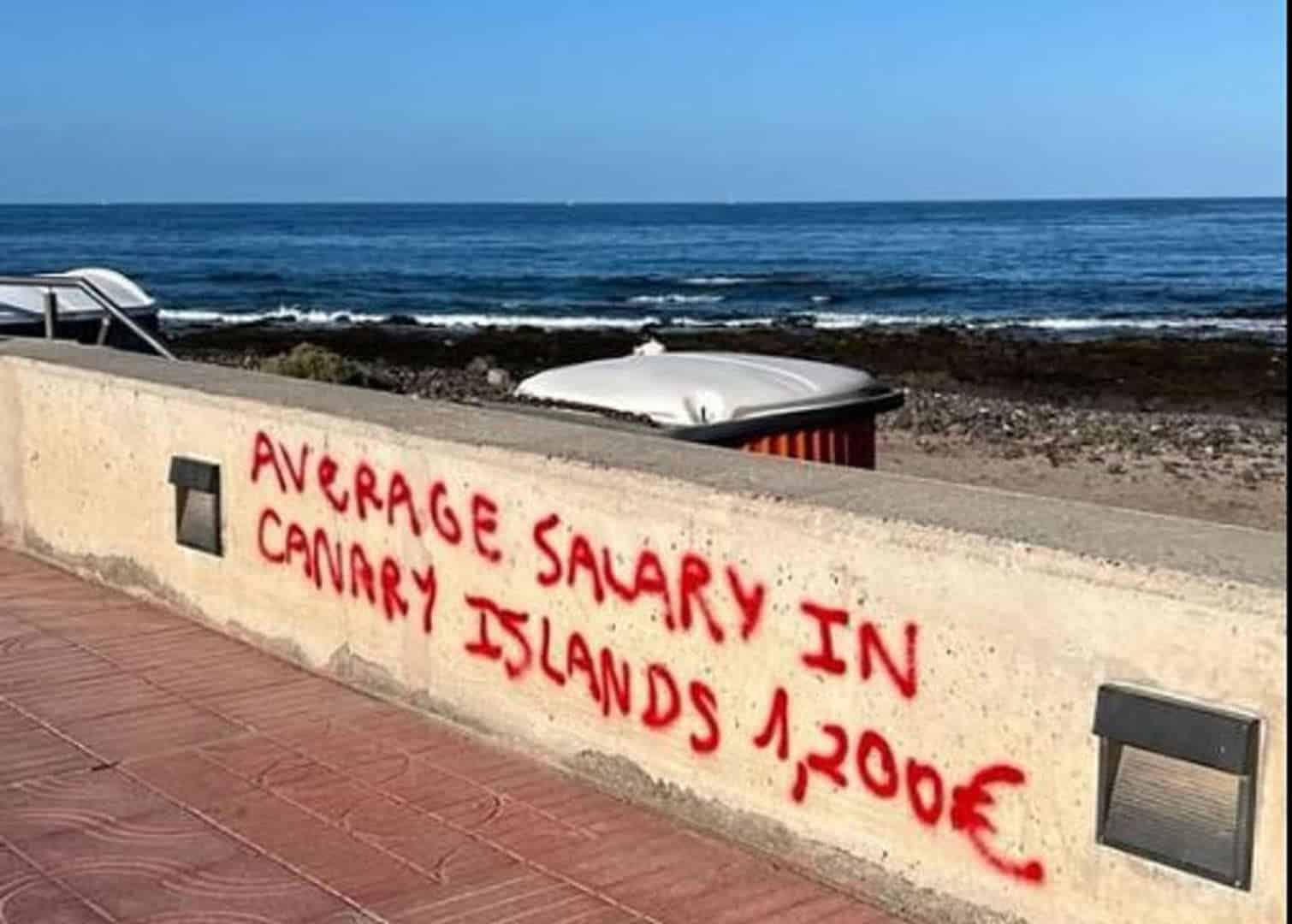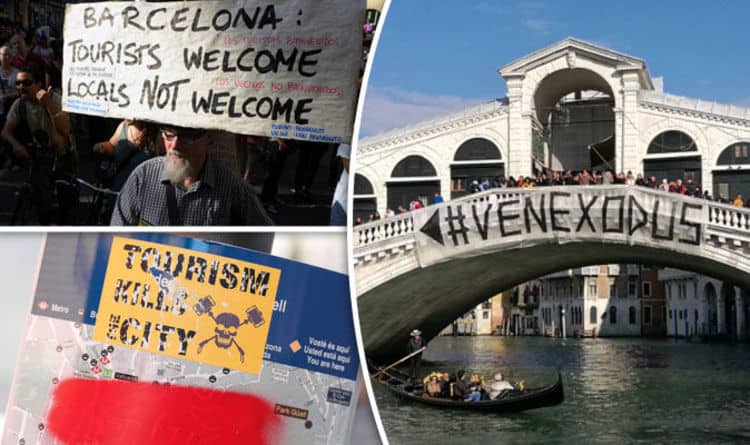The fervent anti-tourism sentiment sweeping across Europe has found new ground in Athens, as graffiti demanding an end to over-tourism now adorns the historic city's walls. Protesters, enraged by the influx of visitors inundating their beloved home, took to the streets last month to voice their discontent.
Greece, home to iconic landmarks like the Acropolis, issued a plea to curb tourism, citing concerns over the increasing number of holidaymakers swarming the city. The backlash against tourists has materialised in various forms, from graffiti to public demonstrations, and even instances of vandalism and arson dating back to last year.
 Large signs plastered on buildings bear strong messages, with one stating, "Tourists Go Home! Greek State Kills." Another depicts two Airbnb towers engulfed in flames, accompanied by the caption, "Tourists Enjoy Your Stay In The Cemetery Of Europe." Slogans such as "No Tourists No Hipsters" and "Burn Airbnb" echo the sentiment reverberating through the streets.
Large signs plastered on buildings bear strong messages, with one stating, "Tourists Go Home! Greek State Kills." Another depicts two Airbnb towers engulfed in flames, accompanied by the caption, "Tourists Enjoy Your Stay In The Cemetery Of Europe." Slogans such as "No Tourists No Hipsters" and "Burn Airbnb" echo the sentiment reverberating through the streets.
 Protesters lament not only the overcrowding caused by tourists but also the displacement of locals from their homes. Anna Theodorakis, a displaced resident, described the situation as "very depressing," advocating for direct action to address the housing crisis exacerbated by tourism.
Protesters lament not only the overcrowding caused by tourists but also the displacement of locals from their homes. Anna Theodorakis, a displaced resident, described the situation as "very depressing," advocating for direct action to address the housing crisis exacerbated by tourism.
Concerns mount over the proliferation of Airbnbs in the city, with locals fearing the erosion of traditional neighbourhoods. Property developers acknowledge the detrimental effects of over-tourism, emphasising the importance of preserving Greek culture to attract tourists genuinely interested in the country's heritage.
Despite growing dissent, the Greek government remains steadfast in its pursuit of tourism. Initiatives like "Rhodes Week," offering free holidays to British tourists affected by wildfires, demonstrate the government's commitment to attracting visitors despite local opposition.

The anti-tourism fervour in Athens mirrors similar movements across Europe, from Menorca to the Canary Islands, where residents demand action to mitigate the adverse effects of mass tourism.
 (Source: MSN)
(Source: MSN)


